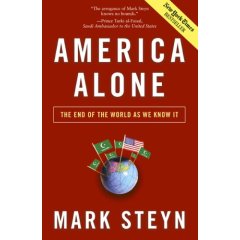On the basis for morality
Back in March / April, I had a lengthy discussion with commenter Psi regarding my post on Mindless-process Design, with regards to evolutionary theory and intelligent design. Towards the end of the discussion Psi brought up the topic of ethics and morality, to which I responded,
…how does a purely naturalistic methodology, in a purely natural realm, produce an abstract notion (e.g., evil)? And further beyond that, how does one’s mind, built purely by mechanistic forces, not only comprehend that something is evil, but that evil is wrong? For that matter, why would something – anything – be considered wrong? On who’s authority?
Psi responded by referring me to a couple of posts he’s prepared under the subject “Being good without god”. Although I promised to respond to Psi’s posts within “a few days”, it’s been over a month… sigh. Well, here is my lengthy response, albeit passed the “few days” boundary. (note: I encourage you to read this comment in our thread, as well as Psi’s posts, to get a groundwork for my text) Also, I have mined posts that I previously wrote, at New Covenant, which pertain to this topic, although in some cases I have rewritten my original commentary for clarity towards this discussion.
There are quite a few issues that Psi writes on in his posts. Rather than simply address them one by one, I will attempt to comment on them topically. Essentially, I think that Psi is positing that religious belief is inherently irrational, that humans can behave in morally upright ways without the need of adhering to religion or belief in a deity, and that ethical thought and standards for humans came about through the strictly natural processes of evolution.
If you want to skip my lengthy post, and simply get to gist of my point, then here it is: It is my assertion that while humans can be good without [the existence of] god, they have no basis with which to justify why they should be.
Read the rest of this entry



 The subtitle of Steyn’s book is The end of the world as we know it. On the cover we see a globe, dotted with flags of Islam, and one lonely American flag. The front cover recommendation quote is, “The arrogance of Mark Steyn knows no bounds.” – Prince Turki al-Faisal, Saudi Ambassador to the United States.
The subtitle of Steyn’s book is The end of the world as we know it. On the cover we see a globe, dotted with flags of Islam, and one lonely American flag. The front cover recommendation quote is, “The arrogance of Mark Steyn knows no bounds.” – Prince Turki al-Faisal, Saudi Ambassador to the United States.